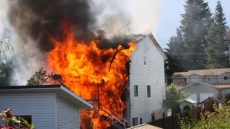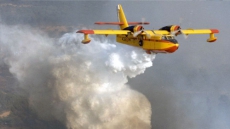VANCOUVER — A law prohibiting the sale of a service in British Columbia that preserves human bodies at ultra-low temperatures after clinical death is being challenged in the province's courts.
The Lifespan Society of British Columbia and Keegan Macintosh filed a notice of civil claim Tuesday in B.C. Supreme Court, arguing sections of the province's Cremation, Interment and Funeral Services Act are unconstitutional because they prohibit the sale of cryonics.
Specifically, the plaintiffs allege sections of the law infringe on the charter rights of life, liberty and security of person and are inconsistent with the principles of fundamental justice.
Furthermore, B.C. is the only jurisdiction in the world that prohibits the sale or offer for sale of cryonics services, the plaintiffs's notice states.
"Here what we're really talking about is the right to a third method of disposition of remains," says Jason Gratl, the society's legal counsel.
"We say the act currently provides for interment. You can have your body buried and it provides for cremation but is there really a state interest, a valid and overriding state interest, that would justify restricting a person's right to choose the third option, namely to have one's body preserved by means of ultra-low temperatures?"
Neither a provincial government spokesperson nor Macintosh was available for comment, and the plaintiffs' allegations have yet to be tested in court.
The notice says Macintosh wishes to enter into a cryonics arrangement with the society.
It says Lifespan wants to sell Macintosh four services, including vitrification, which is a process that replaces blood and other water-based liquids with another substance, cooling, transportation outside of the province and indefinite cooling, known as suspension.
However, Section 14 of the act prohibits a person from offering for sale or selling an arrangement that preserves human remains based on cryonics, irradiation or "any other means of preservation by storage" on the expectation of future resuscitation.
Individuals who break the law can be fined up to $10,000, be incarcerated for as many as 12 months, or face both sanctions, while corporations may be fined as much as $100,000, the notice said.
The law doesn't define cryonics, adds the document, which calls it the long-term preservation of the human body after clinical death to stop decomposition. It says the intention is future resuscitation.
"Lifespan would not guarantee resuscitation or exaggerate the prospects of resuscitation," the notice says. "In particular, Lifespan represents the cryonics offers a possibility of resuscitation that is meaningful to some persons.
"The prospects for successful resuscitation depend on a number of profound improvements in future medical science."
Gratl says it's impossible to predict what future medical technologies will offer.
The notice says the provincial government has 21 days to respond after being served with the document.




